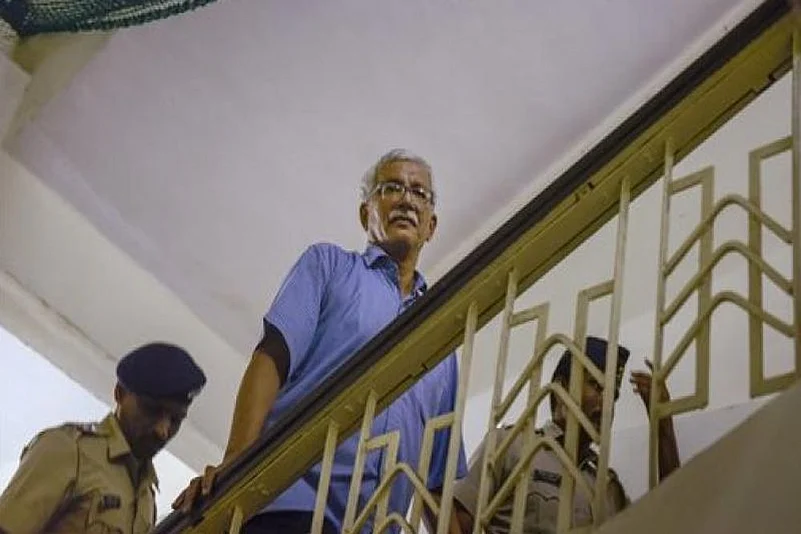The Supreme Court has granted bail to Bhima Koregaon accused Vernon Gonsalves and Arun Ferreira who are facing charges under the Unlawful Activities (Prevention) Act, 2002, for alleged Maoist links. The case pertains to the Elgar Parishad conclave held in Pune on December 31, 2017, which according to the Pune police was funded by Maoists. Police had alleged that the inflammatory speeches made there led to violence at the Koregaon-Bhima war memorial in Pune the next day.
While granting bail, the court noted that both activists have been in custody for almost five years. Although allegations against them are serious, that alone cannot be the sole ground to deny bail and justify their continued detention pending the trial, the court stated.
Both the activists have been lodged in jail since 2018 for alleged offences in connection with the 2018 caste-based violence that broke out at Koregaon-Bhima war memorial in Pune and for having alleged links with the proscribed far-left outfit, Communist Party of India (Maoists). A bench of Justices Aniruddha Bose and Sudhanshu Dhulia delivering the judgment said that Gonsalves and Ferreira shall not leave Maharashtra and surrender their passports to the police. It also directed the two activists to use one mobile each and let the National Investigation Agency (NIA), which is probing the case, know their addresses.
What is the Bhima Koregaon Case?
Activists Vernon Gonsalves and Arun Ferreira along with 14 others were accused by the National Investigation Agency (NIA) of being responsible for the case-based violence that erupted at the Koregaon-Bhima war memorial in Pune in 2017. The Pune police and the NIA contended that the activists delivered "infalmmatory speeches" which triggered clashes between the Maratha and Dalit groups at an event to commemorate the two hundredth anniversary of the Battle of Koregaon Bhima.
Sixteen activists were arrested for allegedly conspiring and planning the violence and charged with various provisions of the Unlawful Activities (Prevention) Act and the Indian Penal Code based on letters and emails primarily retrieved from their electronic devices, according to a report by LiveLaw.
Other accused
In November 2022, activist Gautam Navlakha was released from jail and put under house arrest on account of his deteriorating health. He was in custody since April 14, 2020, and was lodged in Taloja prison in Navi Mumbai in connection with the Elgar Parishad-Maoist link case. The apex court order came on an appeal against the April 26 order of the Bombay High Court dismissing Navlakha's plea for house arrest over apprehensions of lack of adequate medical and other basic facilities in Taloja jail.
Tribal rights activist Stan Swamy passed away while in custody in July 2021, after being denied bail despite repeated pleas citing Swamy's ill health. Varavara Rao, lawyer and activist Sudha Bhardwaj were all put under house on August 28, 2019, including writer and poet Navlakha. The apex court granted regular bail to Telugu poet-activist Varavara Rao on medical grounds last year. Sudha Bhardwaj was also granted bail in December 2021.


























